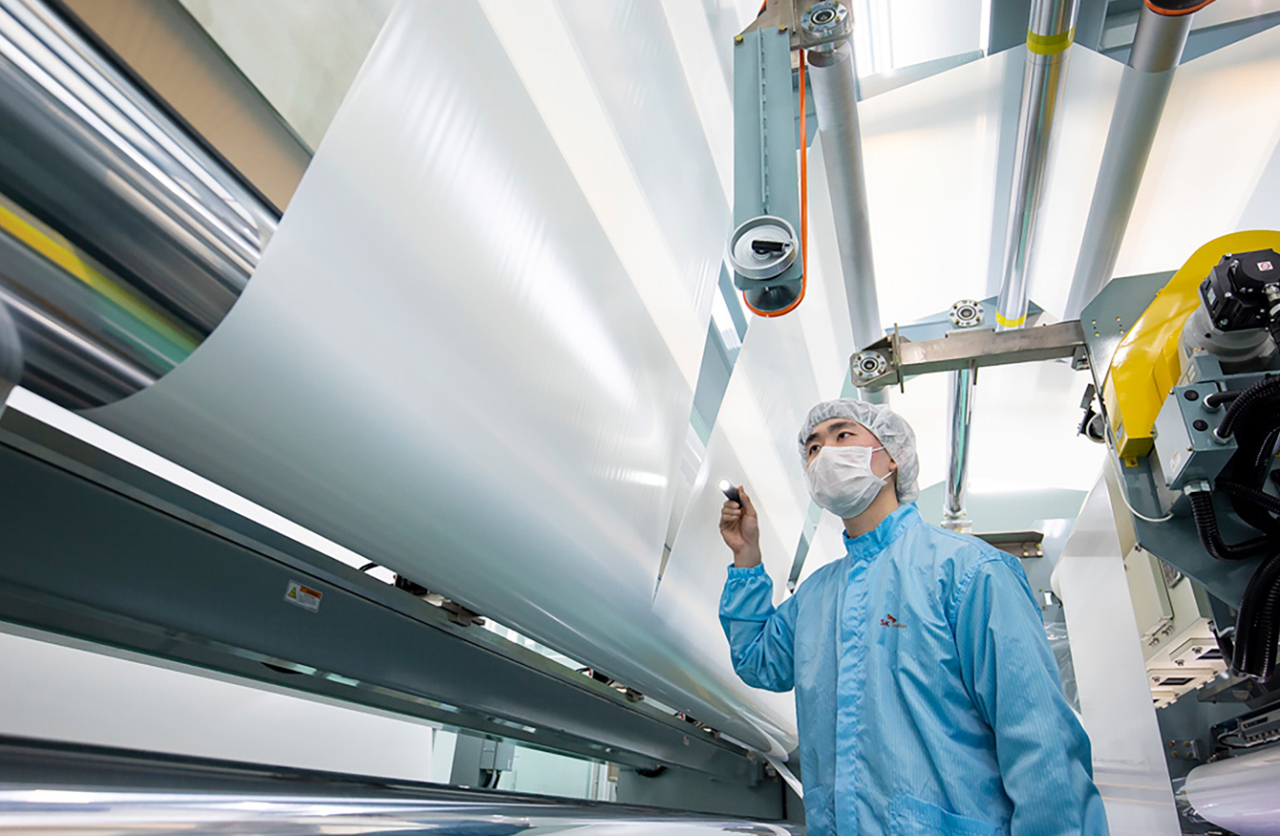 |
An SK Innovation employee inspects battery separator films. (SK Innovation) |
South Korean battery materials makers are expected to take up 75 percent of separator film production within North America and Europe by 2030, a report showed Monday.
Of the Korean companies, SK IE Technology, an electronics materials maker affiliated with SK Group, is projected to control the largest market share of 33 percent with an annual production capacity of 380 million square meters of separators in the cited period, according to energy market tracker SNE Research.
Battery separator films act as a barrier between the positively and negatively charged electrodes to prevent short-circuits between active battery components to ensure the performance and safety of lithium-ion batteries.
Korean battery materials maker WCP is projected to produce 340 million square meters annually, generating 29 percent of sales in North America and Europe, while Asahi Kasei, a Japanese chemical materials company, is likely to have an annual production capacity of 180 million square meters and a 16 percent market share.
Asahi Kasei, however, might control less market share because Japanese separator makers also tend to take a conservative stance in expanding their global business due to low productivity, the report said.
LG Chem is likely to take up 13 percent of the market share by annually producing 150 million square meters of film. LG Chem, in particular, announced last year it would set up a joint venture with Japan-based Toray in Hungary.
China-based battery separator makers are estimated to make 110 million square meters of film with a market share of less than 10 percent due to the US’ Inflation Reduction Act that de-facto curbs Chinese companies’ influence in North America.
Stressing that there are few companies in North America producing wet separators, which are mostly used in lithium-ion batteries for electric vehicles, the report urged Korean companies to foray into the burgeoning EV battery materials market.
“Following China, North America and Europe are the next largest EV markets. The US’ IRA and Europe’s Critical Raw Materials Act have also left no choice for other global companies but to produce battery separator films within (those) regions,” it said. “Korean companies who are actively expanding their businesses there are likely to lead the global battery materials market.”
The report, in particular, estimated that EVs will account for 60 percent of the North American automotive industry by 2030, compared to just 6 percent at present.







